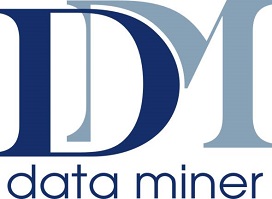This 2-day CompTIA Cloud Essentials+ course is designed for individuals across various professional backgrounds seeking a fundamental understanding of cloud computing. It’s ideal for both technical and non-technical professionals interested in how cloud technology impacts business and IT environments. With no strict prerequisites, the course welcomes anyone with a keen interest in cloud concepts.
Participants will explore essential cloud topics, including basic concepts, security, architecture, and business implications. By the end of the course, attendees will have a solid foundation in cloud computing, enabling them to make informed decisions and contribute to cloud-related initiatives in their organizations. Whether you’re looking to enhance your IT skills or understand the cloud’s role in your industry, this course offers the knowledge and tools needed to navigate the evolving cloud landscape.
Intended Audience:
This course is designed for a broad range of professionals interested in gaining a foundational understanding of cloud computing. It’s ideal for:
- IT Support Technicians and Help Desk Specialists seeking to broaden their technical horizons.
- Systems and Network Administrators looking to implement and manage cloud solutions.
- Project Managers and Business Analysts aiming to align cloud technologies with business strategies.
- Non-technical professionals interested in understanding the impact of cloud technologies on their roles and industries.
- Prerequisites:
- There are no stringent requirements. However, individuals with 6 to 12 months of experience in any business or IT-related role, coupled with a basic understanding of cloud technologies, will find the course more enriching.
Key Learning Objectives:
- Understand cloud computing’s fundamental concepts, service models, and deployment strategies.
- Grasp the technical aspects of cloud operations, including network, storage, and design considerations.
- Learn how cloud services fit into broader business strategies and financial considerations.
- Explore the principles of cloud security, governance, risk management, and compliance.
- Discover the impact of cloud technology on various business roles and industries.
- Gain insights into cloud vendor relationships, service management, and operational efficiency.
Course outline:
Module 1: Understanding Cloud Computing Concepts
- Understand Basic Cloud Concepts and Terms
- Cloud Computing
- Cloud Service Models
- Cloud Components and Clients
- Cloud Deployment Models
- Shared Responsibility Model and Security
- Identify Cloud Network and Storage Technologies
- Cloud Networking Technologies
- Remote Access Types
- Cloud Storage Technologies
- Recognise Cloud Design Aspects
- Cloud Design Components
Module 2: Applying Cloud Business Principles
- Relate Cloud Concepts to Business Principles
- Business and the Five Cloud Computing Characteristics
- Business and the Three Cloud Service Models
- Business and the Four Cloud Deployment Models
- Establish Cloud Vendor Relations
- Professional Services
- Time to Market
- Skill Availability
- Support
- Managed Services
- Formal Requests
- Service Documents
- Distinguish the Financial Aspects of Engaging a Cloud Service Provider
- Expenditures
- Licensing Models
- Contracts
- Billing
- Human Capital
- Report Financial Expenditures
- Calculate Compute, Storage, and Network Expenditures
- Reporting
- Chargebacks and Resource Tagging
- Maintenance
- Hardware Lifecycle Management
Module 3: Advising a Cloud Design and Migration
- Relate Cloud Concepts to Cloud Design and Migration
- Cloud Design and Migration and the Five Cloud Characteristics
- Cloud Design and Migration and the Three Cloud Service Models
- Use Cloud Assessments
- Cloud Migration Phases
- What is a Cloud Assessment?
- IT Infrastructure
- Orchestration
- Additional Assessment Components
- Documentation
- Key Stakeholders
- Cloud Assessments and Managed Service Providers
- Evaluations
- Manage Cloud Design
- Initial Design Concepts
- Design and the Cloud Deployment Models
- Managing Capital Expenditures and Operating Expenditures
- Service Levels
- Industry Regulations
- Disaster Mitigation
- Redundancy
- High Availability
- Disaster Recovery
- Compare Cloud Migration Approaches
- What is Cloud Migration?
- Three Phases of the Cloud Migration
- Seven Cloud Migration Types
- Identify Benefits and Solutions of Cloud Services
- Cloud-Native Applications
- Data Analytics
- Customer-Facing Services
- Evolving Business Services
- Digital Marketing
Module 4: Operating in the Cloud
- Relate Cloud Concepts to Technical Operations
- Technical Operations and the Five Cloud Characteristics
- Technical Operations and the Four Cloud Deployment Models
- Identify the Technical Aspects of Cloud Operations
- Data Management
- Availability Zones
- Geo-redundancy
- Disposable Resources
- Alerts and Logging
- Cloud Managed Service Providers
- Understand Devops in the Cloud
- What is DevOps?
- Continuous Integration/Continuous Delivery
- Infrastructure as Code (IaC)
- Templates
- Configuration Management
- Upgrading and Patching
- API Integration
- Testing in QA Environments
- Explain Cloud Security Concerns, Measures, and Concepts
- Shared Security Model
- Data Security
- Application and Infrastructure Security
- Security and Network Connections
Module 5: Managing Cloud Governance
- Relate Cloud Concepts to Governance
- Governance and the Five Cloud Characteristics
- Governance and the Three Cloud Service Models
- Governance and the Four Cloud Deployment Models
- Apply Risk Management Concepts
- Risk Assessment
- Classification of Risks
- Risk Response
- Risk Documentation
- Risk Register
- Data Portability
- Understand Compliance and the Cloud
- Compliance and Standards
- Manage Policies and Procedures for Cloud Services
- Standard Operating Procedures (SOP)

